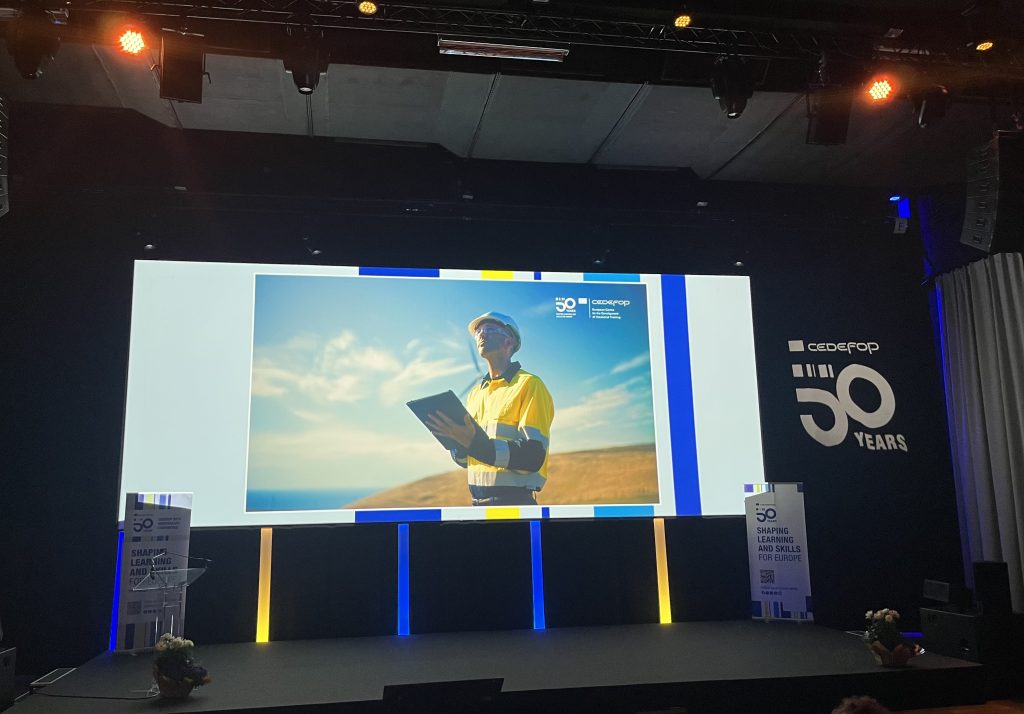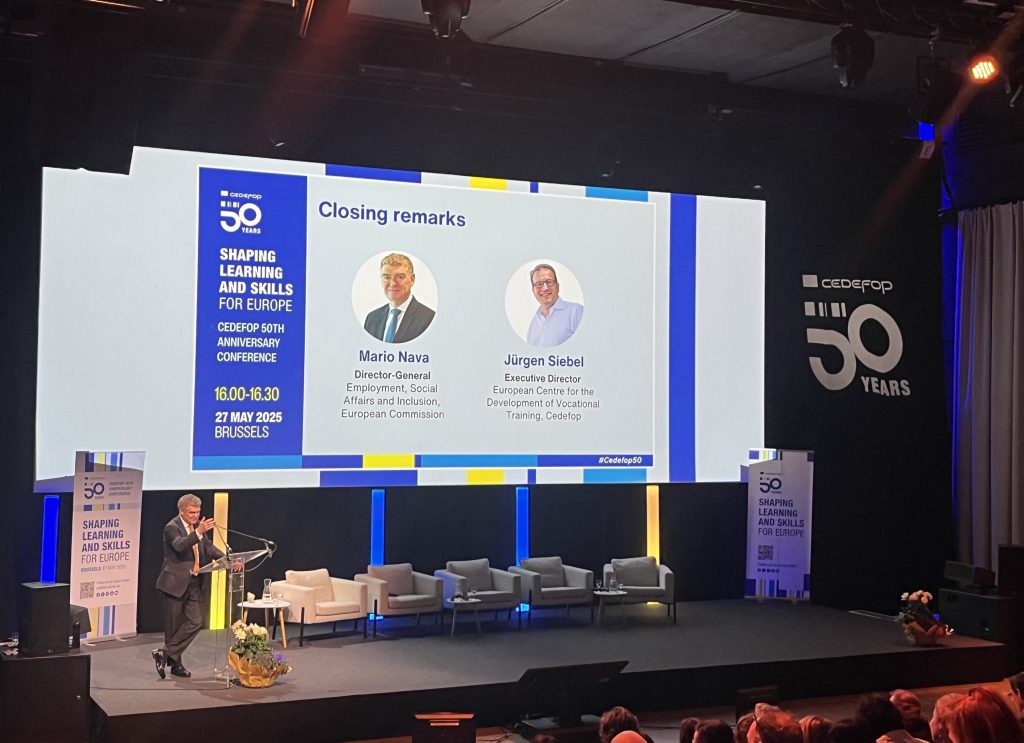
Skills: EBC attends Cedefop’s 50th Anniversary Conference “Shaping Learning and Skills for Europe”
May 28, 2025
On 27 May 2025, EBC participated in Cedefop’s 50th Anniversary Conference, titled “Shaping Learning and Skills for Europe.” This milestone event brought together institutional representatives, social partners, education providers, and civil society stakeholders to reflect on five decades of Cedefop’s contribution to vocational education and training (VET) in Europe, and to discuss the future of skills development across the EU.
The conference opened with welcome speeches from Mario Patuzzi, Chair of the Cedefop Management Board, who underlined the agency’s longstanding role in promoting learning and skills. Li Andersson (the Left, Finland), Chair of the European Parliament’s Committee on Employment and Social Affairs, delivered a message emphasising the need for strong civil skills, upskilling, reskilling, and lifelong learning as the foundation of resilience and security in Europe. Finally, Stefan Olsson, Deputy Director-General at DG EMPL, addressed the growing skills shortages across most sectors, presenting upcoming EU initiatives such as the upcoming European VET strategy, support for new Centres of Vocational Excellence, a pilot EU VET diploma, and the establishment of an EU Skills Observatory.
Throughout the day, sessions showcased the central role of Cedefop in shaping EU policy through its Skills Intelligence tools, which provide essential data to support effective VET systems. Key topics included the growing demand for AI and digital competencies, the impact of the green transition on all sectors, and the need to bridge the gap between education and the labour market. Experts emphasised the importance of a culture of lifelong and life-wide learning, particularly for adult workers in SMEs, who often face limited access to training. Portability and transparency of learning outcomes were also highlighted as essential for mobility and adaptability.
Panel discussions featured a diverse group of stakeholders including employers, trade unions, education professionals, and civil society representatives. Speakers explored pressing issues such as the role of green and digital skills, the integration of micro-credentials, demographic shifts, skills and labour shortages in Europa, funding mechanisms, and the importance of making VET more attractive, particularly for young people. Experts also addressed the future of European policies and Cedefop’s role in supporting vocational education and training through research, innovation, and policy development. Participants broadly agreed that ensuring access to quality training, especially for workers in SMEs, requires a joint commitment and investment from both public and private actors.
Closing remarks were delivered by Mario Nava, Director-General of DG EMPL, and Jürgen Siebel, Executive Director of Cedefop, both reiterating the agency’s pivotal role in addressing Europe’s skills challenges.
For EBC, addressing the skills and labour challenges in the construction sector is essential to support Europe’s green and digital transitions. With SMEs accounting for 99% of businesses in the sector, access to a skilled and adaptable workforce is essential to ensure its resilience and long-term development. Vocational education and training must be placed at the heart of workforce development policies. Skilled crafts and trades are central to construction but often lack recognition. Promoting vocational pathways through targeted initiatives can help change perceptions and improve the attractiveness of construction careers, particularly among young people.
Investing in quality training, modern equipment, and upgraded apprenticeship schemes is key to enabling SMEs to meet evolving industry demands. Skilling and reskilling efforts must match the pace of technological change and sustainability goals, ensuring that construction SMEs across Europe are well-equipped for the future.
For more information, please read the EBC position paper on labour and skills needs in the European construction sector (2024)

